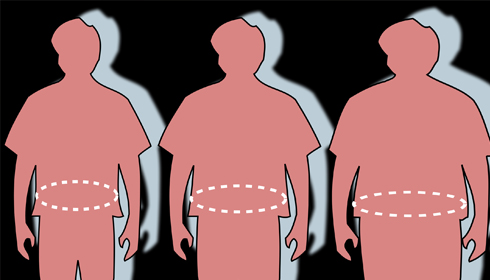
New weight loss drug reduced weight by a fifth during Phase2 trial
A new weight loss drug, survodutide, developed by German pharmaceutical major Boehringer Ingelheim and Copenhagen-based Zealand Pharma, has resulted in about 20% weight loss in overweight and obese participants compared to placebo during a trial, the companies announced recently.
According to a joint statement released by the companies, the Detailed data were presented at the 2023 American Diabetes Association’s 83rd Scientific Sessions held in San Diego, California.
The Phase II study included two analyses, planned (assigned dose at randomisation, which also served as the primary endpoint) and actual (dose after therapy).
People who finished the trial on the 4.8 mg dose (real treatment analysis) lost about 19% of their body weight.
As previously stated, the planned treatment analysis revealed that all participants randomised to the 4.8 mg dose lost over 15% of their body weight, the statement added.
Also Read:
| - Anti-obesity drugs can effectively help to control weight in bariatric surgery patients, finds study |
According to the companies, survodutide-induced weight loss had not reached a plateau at week 46, implying that additional weight loss could be accomplished with a longer treatment period.
Commenting on the trial findings, the Principal Investigator, Dr Carel le Roux, Professor at University College in Dublin, Ireland, said, “Given the prevalence of obesity and its many disease-related complications, there is a dire need for treatments that can help treat the disease of obesity effectively.”
Pointing out that the current treatments for obesity mainly focus on weight loss by reducing energy intake, he added, “By activating both the glucagon and GLP-1 receptors, survodutide may both inhibit appetite and improve energy expenditure, thereby helping to treat the disease of obesity. These encouraging data support the further study of survodutide in larger Phase III trials.”
According to the companies, after 46 weeks of treatment, up to 40% of people who reached the highest two doses of survodutide achieved a weight loss of at least 20%, versus 0% with a placebo.
Moreover, 67% of people who reached survodutide 4.8 mg registered a body weight loss of 15% or more compared to 4.3% of those on placebo, the announcement added.
However, according to the statistics, the adverse occurrences caused approximately a quarter of the participants to drop out of the experiment midway.
Most treatment discontinuations due to adverse events occurred during the rapid dose-escalation phase and may potentially be mitigated with more gradual dose escalation. The adverse events reported were similar to those expected with the GLP1-R agonist class of drugs.
“With our long heritage in researching and developing new treatments for cardiovascular, renal, and metabolic conditions, we are extremely encouraged by these robust and compelling Phase II data,” said Carinne Brouillon, Head of Human Pharma, Boehringer Ingelheim.
“Survodutide may become the first anti-obesity medication to reduce appetite while increasing energy expenditure through the liver,” she added.
Pointing out that obesity is one of the most significant healthcare challenges in medicine today, Chief Medical Officer at Zealand Pharma, Dr David Kendall, said, “At Zealand Pharma, we have both experience and success in discovering and developing peptide therapeutics that target key metabolic pathways – designed to help people living with overweight and obesity by achieving substantial weight loss while addressing the many complications of this disease.”